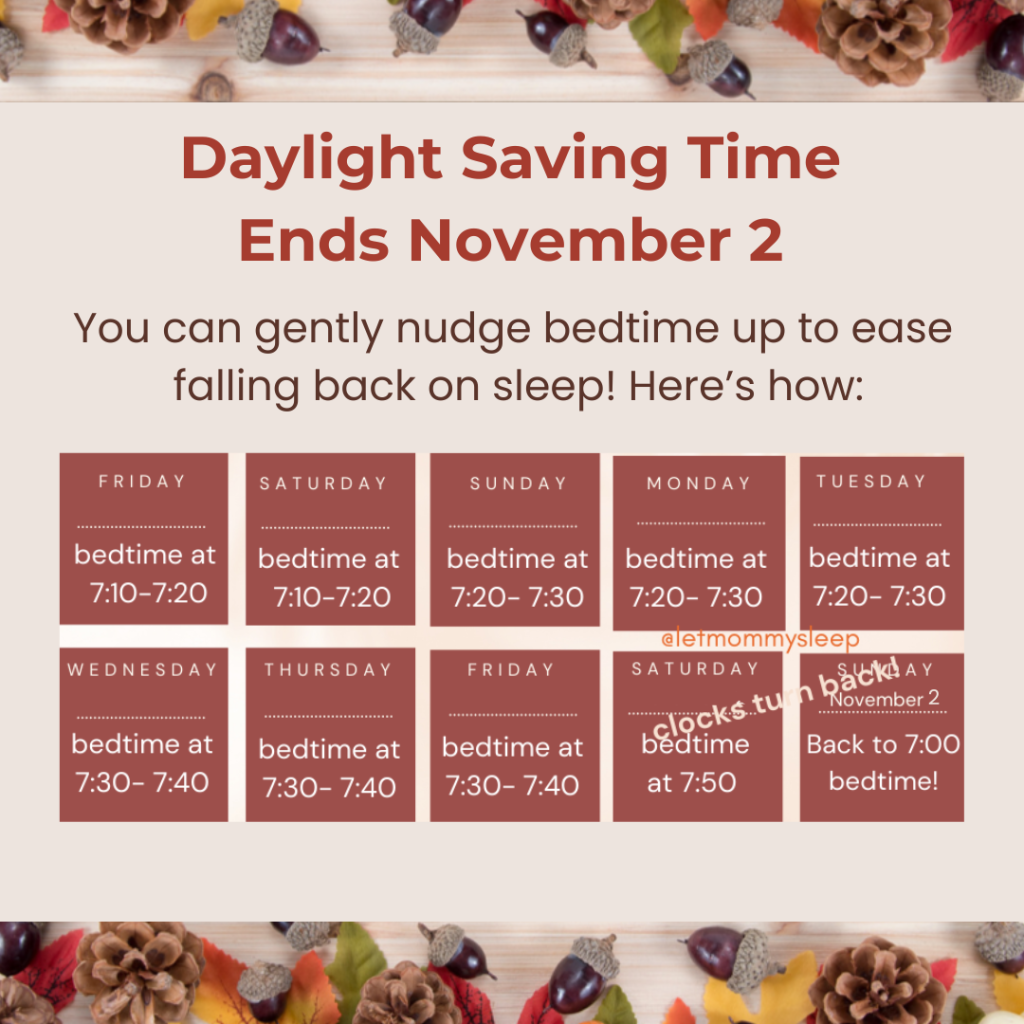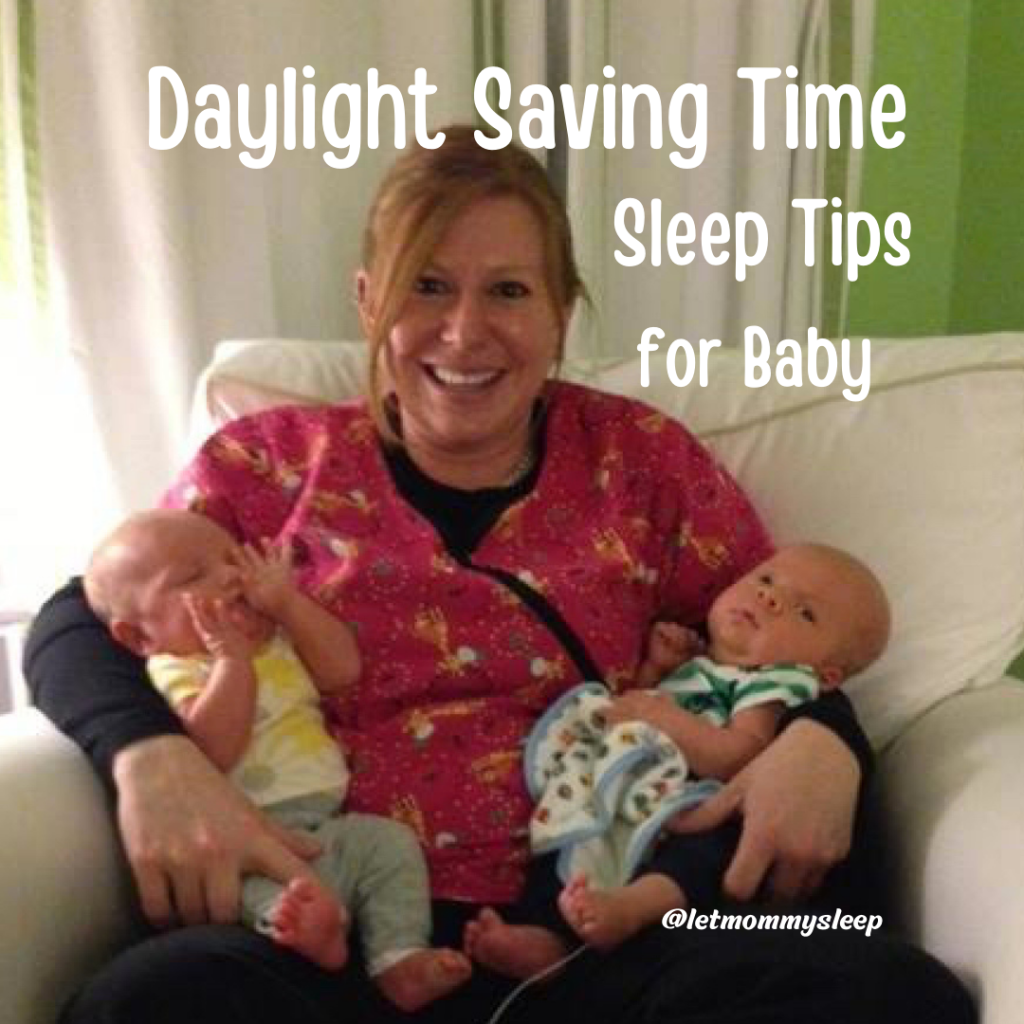How to Ease Daylight Saving Sleep Loss
Daylight Saving Time (DST) is when clocks are moved forward or backward by one hour to make better use of daylight. For parents of newborns, infants, or twins this one-hour shift can disrupt sleep schedules, feeding routines, and daily rhythms. But with a few simple strategies, you can make the transition smoother for both you and your baby. Our guide shares how to ease daylight saving sleep loss for newborns, infants and yourself.
Quick Tips to Ease Baby Sleep During DST
- Adjust Bedtime Gradually: Move bedtime 10–15 minutes earlier each night in the week leading up to DST.
- Shift Daily Activities: Adjust meals, naps, and playtime slightly earlier to support the new schedule.
- Keep the Environment Dark: Use blackout curtains or shades in the evening to help your baby wind down naturally.
If you want to review safe sleep, read 10 Steps to Safe Sleep for Baby.
How DST Affects Babies
Even though clocks “fall back” or “spring forward,” your baby’s internal clock hasn’t adjusted. You might notice:
- Early-morning wakeups or fussiness for a few days
- Slight disruptions in nap times or bedtime routines
- Increased crankiness until your baby adjusts
Remember: Early wakeups are normal and don’t necessarily mean something is wrong. This is true all year.
Step-by-Step Bedtime Adjustments for Autumn (End of DST)
Gradual changes work better than sudden ones. For a baby who typically goes to bed at 7:00 p.m., try the following in the 10–14 days leading up to DST:
- Saturday–Monday: Bedtime 7:10–7:20 p.m.
- Tuesday–Thursday: Bedtime 7:20–7:30 p.m.
- Friday: Bedtime 7:40–7:50 p.m.
- Saturday (DST day): Bedtime 8:00 p.m. (which will be 7:00 p.m. on the clock)
Keep a consistent bedtime routine: Bath, final feed, quiet time, and bonding. Predictable routines help babies adjust and develop healthy sleep habits.
Pro tip: Leave your baby alone if a nap seems long. They’re often making up the lost hour!

Ease Daylight Saving Sleep Loss: Don’t Forget Your Own Sleep
Sleep is crucial for parents too. Try these strategies:
- Swap full nights of sleep with your partner when possible
- Shift your bedtime and wake time 15 minutes at a time to match your baby’s new schedule
- Avoid screen time before bed and create a dark, quiet sleep environment
Sleep deprivation affects alertness, mood, immune function, and even decision-making—so protect your rest as much as your baby’s.
Why Do We Have Daylight Saving Time?
DST was introduced to make better use of natural daylight. But since it started, at least 45 states have considered or passed legislation to shift to stop changing the clocks. Key facts:
- Energy Savings: Extending daylight hours may reduce electricity use (though results are mixed).
- More Daylight for Activities: Longer evenings allow more outdoor time and boost recreational opportunities.
- Safety Benefits: Some studies suggest reduced car accidents and crime rates in daylight hours.
- Work & Agriculture Adjustments: Many find DST disruptive, especially in parenting and farming routines.
FAQ: Daylight Saving and Baby Sleep
Q: How long will my baby take to adjust to DST?
A: Most infants adjust within 3–7 days, though some may take up to two weeks.
Q: Can I start adjusting my baby’s schedule before DST?
A: Yes! Gradual bedtime and wake-time shifts help prevent early-morning fussiness.
Q: How do I help my own sleep during DST?
A: Swap nights with your partner, shift your schedule gradually, and maintain a dark, quiet sleeping environment.
Q: What if my baby refuses to sleep on the new schedule?
A: Stick to predictable routines, use blackout curtains, and remember that short disruptions are normal. Newborns often set their own rhythms.
Key Takeaways
- Gradual adjustments to bedtime, meals, and daily activities help babies transition smoothly.
- Predictable routines, darkness, and gentle approaches work better than sudden schedule changes.
- Protect your own sleep to maintain health, mood, and alertness.
- Early wakeups, fussiness, and nap changes are normal during the first week after DST.
Regarding infant sleep, sleep training and plans are rarely perfect. If following the baby sleep schedule feels forced, it’s okay to just….stop. Newborns in particular are on their own schedule and that is perfectly normal. Daylight Saving time is a parenting reality that can go into the this too shall pass category.

Categories
- Corporate Care & Partners
- COVID19 Archive
- En Espanol
- Expert Guides
- Hiring a Night Nanny
- Infant Safety
- Infant Sleep Hub
- Newborn Care
- Postpartum Health
- Twins & Multiples
- Work as a Night Doula
- zPost Archives
